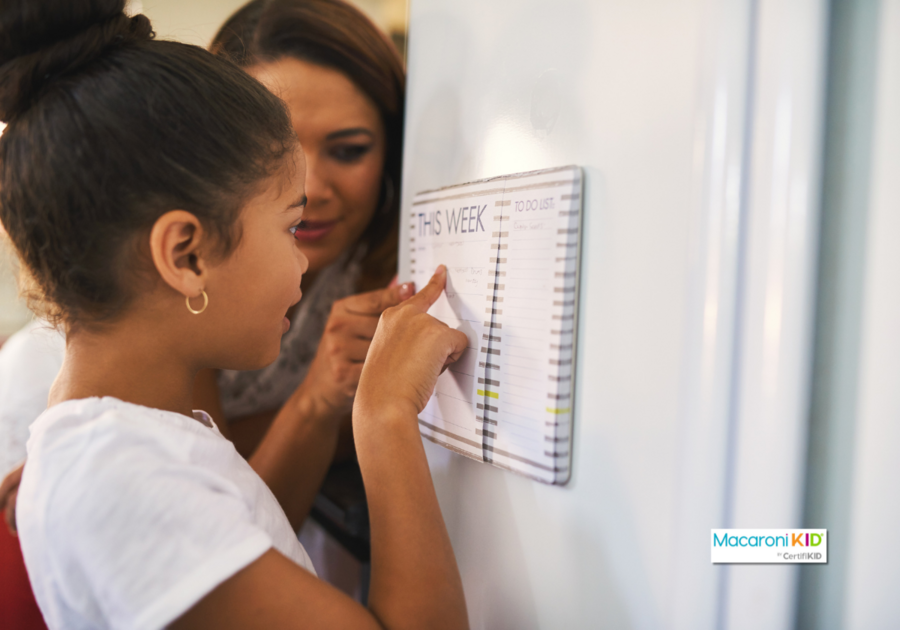If you've ever asked your kid to help around the house and gotten a dramatic sigh or a mysteriously vanishing act, you're not alone. Chores can feel like a battle—but they don't have to be. When done right, they can actually be confidence builders, not conflict starters.
Whether your child is four or fifteen, they want to feel capable. They want to contribute, even if it doesn't always look like it. The key is starting small, choosing age-appropriate tasks, and remembering that progress > perfection.
Here’s how to get your child started on chores—by age and stage—with realistic tips and zero guilt.
Ages 4–6: Starting Small with Pride
At this age, kids love to help. They’re naturally curious, eager to copy what they see, and often more capable than we give them credit for. The goal isn’t perfection—it’s participation.
Great starter chores:
- Putting toys in bins
- Watering plants
- Matching socks
- Feeding pets (with supervision)
- Wiping down low surfaces (tables, cabinets, chairs)
- Helping set or clear the table
Parent tip: Turn chores into a game or story. Use timers, music, or imagination (“Let’s race the clock!” or “Be the Cleanup Fairy!”). Praise effort, not outcome.
Ages 7–9: Building Habits and Confidence
Kids this age are ready for more independence and responsibility. They love feeling trusted with a “real” job and are starting to understand cause and effect (like what happens when we don’t take the trash out).
Great chores for this age:
- Making their bed
- Packing part of their lunch
- Sweeping/vacuuming
- Sorting or folding laundry
- Emptying the dishwasher
- Taking out trash or recycling
- Organizing books, toys, or shoes
Parent tip: Give them ownership. Let them choose between two or three tasks, or be “in charge” of one room or area. They thrive on responsibility when it’s framed as trust, not punishment.
Ages 10–12: Owning the Routine
The tween years are a sweet spot for developing consistency. They’re capable of managing multi-step tasks and understanding how their contributions help the whole family.
Great chores for this age:
- Doing their own laundry (with a checklist)
- Preparing simple meals or snacks
- Vacuuming or mopping floors
- Cleaning their bathroom or bedroom
- Taking care of pets (feeding, walking, cleaning cages)
- Helping younger siblings with simple tasks
Parent tip: Create a visual schedule or checklist they can manage independently. Let natural consequences do some of the teaching (i.e., no clean laundry = no clean clothes). Keep the tone calm and matter-of-fact.
Ages 13–15: Life Skills in Progress
Teenagers are on the brink of independence. Chores at this stage aren’t just about helping out—they’re about teaching life skills they’ll carry into adulthood. The challenge is getting buy-in without a power struggle.
Great chores for this age:
- Deep cleaning shared spaces (kitchen, bathrooms)
- Cooking full meals (with or without a recipe)
- Managing their own laundry, room, and schedule
- Running errands (if appropriate)
- Babysitting siblings or pet care
- Budgeting or tracking spending for a family task
Parent tip: Talk to your teen like a teammate. Explain why it matters and how it prepares them for the future. Link chores to privileges or incentives if needed, but focus on mutual respect—not control.
A Few Final Tips for All Ages
- Start small. Even one consistent task builds momentum.
- Be specific. “Clean your room” is vague. “Put your clothes in the hamper and books on the shelf” is doable.
- Keep it visual. Charts, checklists, or chore jars work wonders.
- Model it. Kids mirror what they see. Do chores with them, especially at first.
- Celebrate effort. A little encouragement goes a long way.
Chores aren’t about getting things done perfectly—they’re about teaching your child that they are part of something bigger. That their contributions matter. That they’re capable. And with a little patience (and maybe a chore chart or two), you’ll raise not just a helper—but a confident, responsible human!



